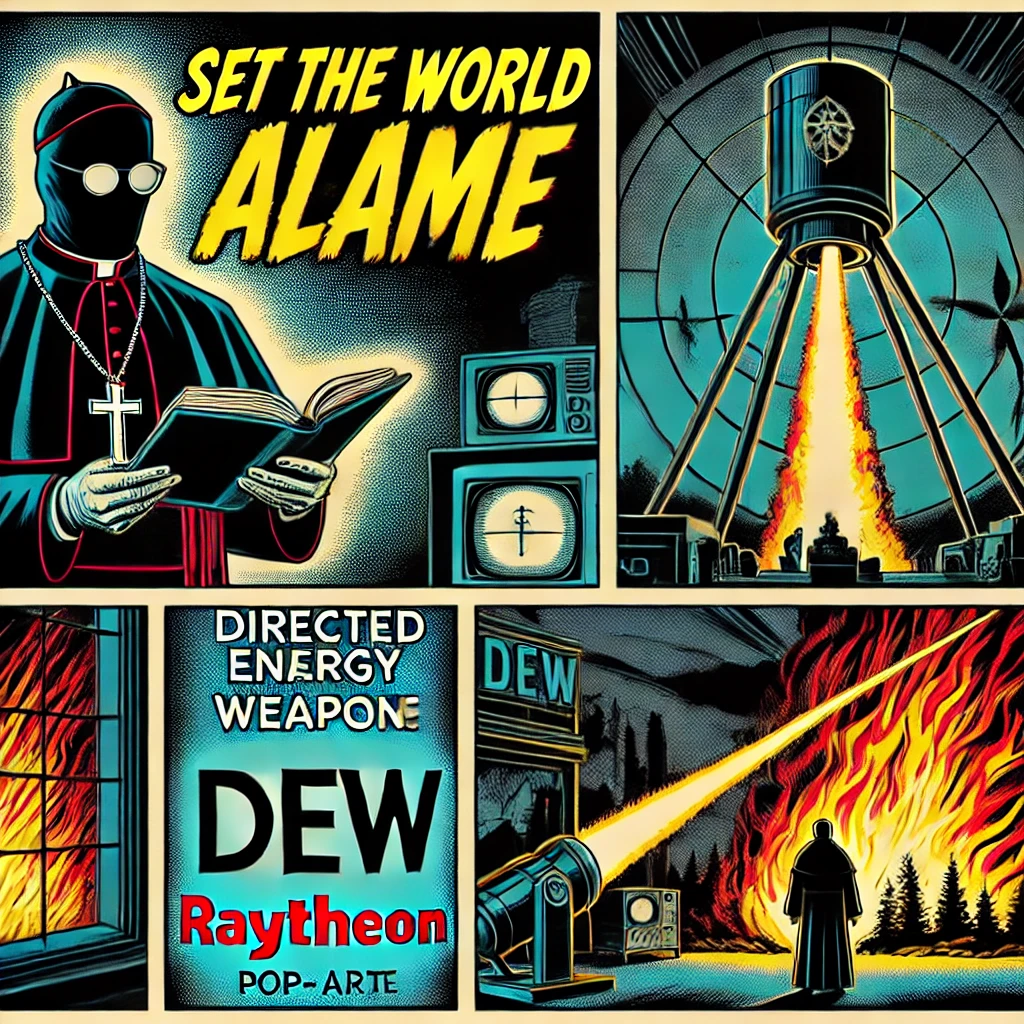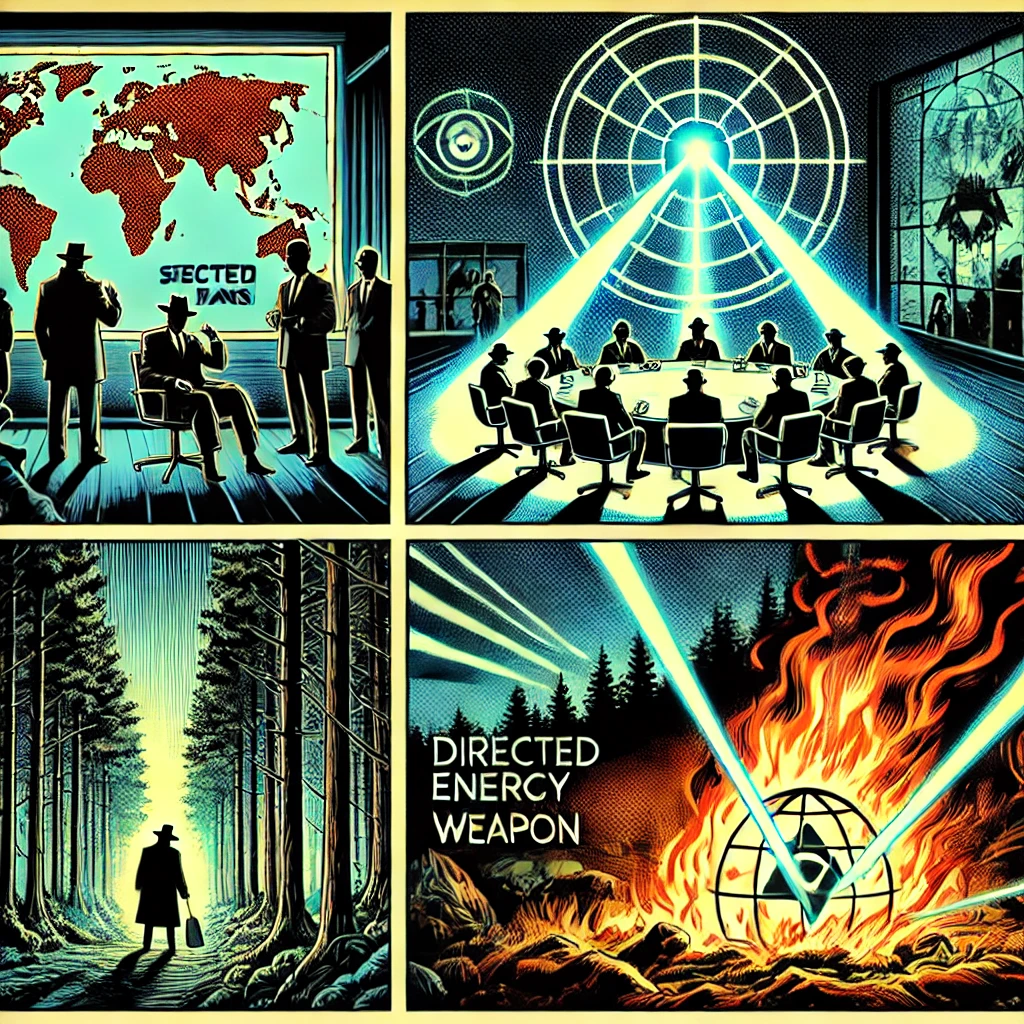Jesuit Fourth Vow denial vs control over Raytheon DEW and set world aflame motto and wildphyres galore
Where does Jesuit Fourth Vow appear in Congressional Record?
The so-called “Jesuit Extreme Oath of Induction,” often associated with the Jesuit Fourth Vow, is alleged to have been recorded in the U.S. Congressional Record on February 15, 1913, during the 62nd Congress, 3rd Session (House Calendar No. 397, Report No. 1523, pages 3215-3216).
However, the authenticity of this oath is highly questionable. Scholars and historians have found no credible evidence supporting the existence of such an oath within the Jesuit Order. The Jesuits’ actual Fourth Vow pertains to special obedience to the Pope regarding mission assignments and does not include any violent or extreme language.
It’s important to note that the purported oath is widely regarded as a fabrication, likely originating from anti-Catholic and anti-Jesuit sentiments prevalent in certain historical contexts. The Jesuit Order has consistently denied the existence of such an oath, and reputable sources support this denial.
In summary, while references to this alleged oath appear in various publications, its authenticity is unsubstantiated, and it is not recognized as a legitimate document by credible scholars or the Jesuit Order itself.
Primary source of Jesuit motto, “Go forth and set the world on fire”
The Jesuit motto “Go forth and set the world on fire” is attributed to Saint Ignatius of Loyola, the founder of the Society of Jesus (Jesuits). Its origin traces to a letter written by Ignatius to Jesuits, specifically to his companion and missionary, Francis Xavier, as an encouragement to evangelize and spread the Gospel with passion and zeal.
Primary Source:
- The phrase derives from Ignatius’ Letters and Spiritual Writings, where he often encouraged Jesuits to embrace their mission with fervor and love for God. While the exact wording “Go forth and set the world on fire” is likely a paraphrase of Ignatius’ sentiments, it reflects the spirit of his directive.
- One specific letter to Francis Xavier and his companions in 1544 embodies the essence of this message:
“Go forth, inflame everything; love is the fire that kindles every soul.”
This reflects the Jesuit commitment to transforming the world through education, service, and spiritual mission.
Interpretation:
The phrase is not a literal quotation from Ignatius but encapsulates his teachings about the zeal for living and spreading the love of God. It continues to inspire Jesuits and others to act with purpose, courage, and dedication in their endeavors.
Evidence of Jesuit control of Raytheon maker of DEW energy weapons
How Directed Energy Weapons ignite Wildphyres
See also, to beware, or perish badly
The article titled “Jesuit Fourth Vow Denial vs Control Over Raytheon DEW and Set World Aflame Motto and Wildphyres Galore,” hosted on wp.conspira.org, explores a mix of religious, technological, and conspiratorial topics. Key themes include the Jesuit Fourth Vow, connections between the Jesuit Order and Raytheon, and the potential use of Directed Energy Weapons (DEWs) in initiating wildfires. Here’s an objective breakdown:
Jesuit Fourth Vow
The Jesuit Fourth Vow is a formal commitment by some members of the Society of Jesus (Jesuits) to undertake missions as directed by the Pope, emphasizing obedience and dedication. The article references an alternative interpretation of this vow, including an alleged “Jesuit Extreme Oath of Induction,” reported to have been documented in 1913. While some have argued that this text reveals hidden motivations of the Order, its authenticity has been debated, with critics questioning its origins.
Jesuit Motto: “Go Forth and Set the World on Fire”
The phrase, often associated with Jesuit teachings, encourages passionate missionary work and zeal in spreading the Gospel. The article seems to interpret this phrase metaphorically or literally, suggesting it could imply broader global influence or control mechanisms. Historical context, however, positions the motto as motivational rhetoric for spiritual missions.
Raytheon and Directed Energy Weapons (DEWs)
Raytheon, a defense contractor, is noted for its development of advanced technologies, including Directed Energy Weapons (DEWs), which utilize focused energy such as lasers to neutralize threats. These systems are primarily designed for military applications, such as countering drones or projectiles. The article speculates about connections between Jesuit influence and Raytheon’s operations, implying a potential link that enables broader strategic control.
Wildfires and DEWs
The article also suggests that DEWs might have been used to ignite wildfires, citing the technology’s capability for precision targeting. While DEWs are real and operational in certain military contexts, their deployment for causing environmental damage, such as wildfires, remains a contentious and unverified claim. Wildfires are commonly attributed to a mix of natural causes and human activity.
Jesuit-Ratheon Connection
The article posits that the Jesuit Order exerts influence over Raytheon, potentially using its technology for undisclosed purposes. This claim ties into broader theories of centralized control by influential entities. Evidence for such a connection is speculative and not widely corroborated by independent sources.
Conclusion
The article presents a complex narrative tying religious orders, advanced weaponry, and environmental phenomena together. The claims involve interpretations of historical vows, corporate activities, and the potential use of military technology in unconventional scenarios. Readers are encouraged to evaluate these assertions critically and consult a range of perspectives to assess their validity.

